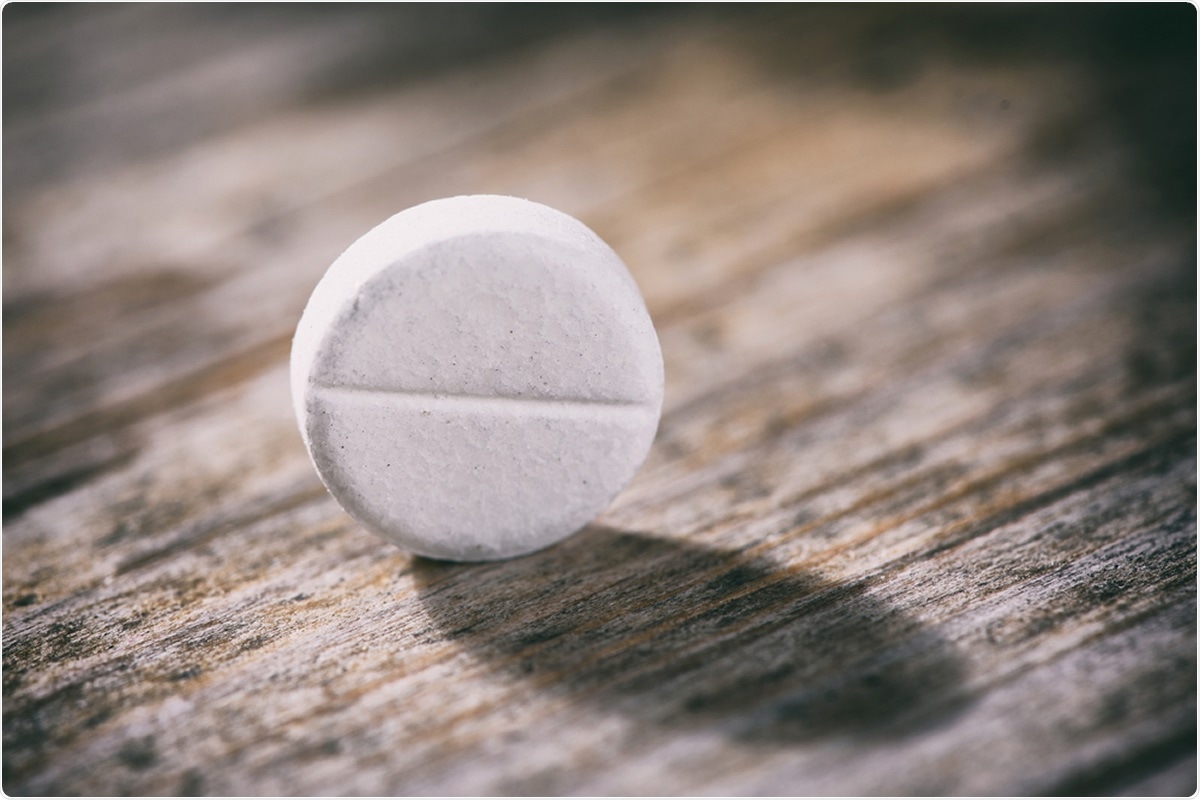Confirmed cases for the coronavirus disease 2019 (COVID-19) – caused by the severe acute respiratory syndrome coronavirus 2 (SARS-CoV-2) have topped 50.8 million worldwide. As many countries start to impose tighter lockdowns once again amid resurging cases, scientists are frantically scrambling to develop an effective treatment regimen for COVID-19 disease or antiviral to block SARS-CoV-2 infection.
Aspirin, also known as acetylsalicylic acid, is a 120-year-old drug used to reduce pain, fever, or inflammation. It is widely used in conditions such as pericarditis, Kawasaki disease, and rheumatic fever, among others.

Image Credit: spaxiax / Shutterstock
The RECOVERY trial
Scientists reported that Aspirin would be part of the world’s largest clinical trial of treatments for patients infected with SARS-CoV-2, called the Randomised Evaluation of COVID-19 thERapY (RECOVERY) trial that is ongoing in 176 hospitals across the UK – and has enrolled more than 16,000 patients.
The RECOVERY trial involves a range of potential treatments that have been suggested for COVID-19. It is still unclear if any of the drugs under study could help people recover faster than the usual standard of hospital care. The suggested treatments include Tocilizumab, Azithromycin, low-dose Dexamethasone, convalescent plasma, REGN-COV2 (monoclonal antibodies), and Aspirin.
Adding Aspirin
People infected with SARS-CoV-2 seem to have hyperactive platelets, which are small, colorless cell fragments in our blood that form clots and stop or prevent bleeding. This means that these patients are at a higher risk of potentially fatal blood clots, which can cause strokes.
Health experts believe that Aspirin, which is also used as an antiplatelet and blood thinner, can help reduce the odds of clotting complications amid a COVID-19 infection.
“We felt it was particularly important to add Aspirin to the trial since there is a clear rationale for believing that it might be beneficial, and it is safe, inexpensive, and widely available. We are looking for medicines for COVID-19 that can be used immediately by anyone, anywhere in the world. We do not know if Aspirin is such medicine, but we will find out,” Professor Peter Horby, co-investigator of the RECOVERY trial and from the Nuffield Department of Medicine, said.
At least 2,000 patients are expected to be randomly administered 15 mg of Aspirin daily, along with their usual treatments. The investigators will compare the data from these patients to another 2,000 patients who received just the standard of care for COVID-19. Further, patients with sensitivity or allergy to Aspirin, with recent major bleeding, or have recently taken Aspirin, or other antiplatelet agents will be excluded from the study.
“Aspirin is widely used to prevent blood clots in many other conditions, including heart attack, stroke, and pre-eclampsia in pregnant women. But enrolling patients in a randomized trial such as RECOVERY is the only way to assess whether there are clear benefits for patients with COVID-19 and whether those benefits outweigh any potential side effects such as the risk of bleeding,” Professor Martin Landray, co-leader of the RECOVERY trial and from the Nuffield Department of Medicine, explained.
The RECOVERY trial’s primary outcome will evaluate mortality after 28 days. The other outcomes include the impact on hospital stay and the need for mechanical ventilation. The researchers noted that it might take several months before there is adequate evidence to conclude whether Aspirin could benefit COVID-19 patients.
The decision to add Aspirin to the list was made by the researchers at Oxford University leading the trial, along with the chief medical officer of England, Professor Chris Whitty. The decision comes after a recommendation made by the UK COVID-19 Therapeutics Advisory Panel.
Global COVID-19 situation
As COVID-19 cases, the UK has reached over 1.21 million confirmed cases and more than 49,000 deaths. Meanwhile, across Europe, France, Spain, and Italy have also seen a sharp rise in cases. They have over 1.85 million, 1.38 million, and 960,000 cases, respectively.
Cases worldwide have surpassed 50.8 million, and the death toll has reached a staggering 1.26